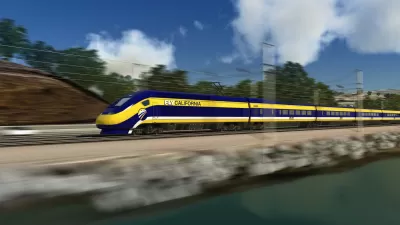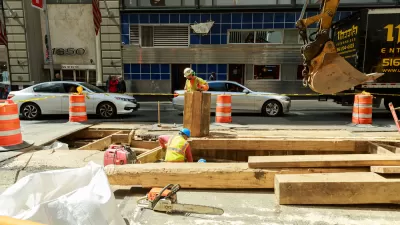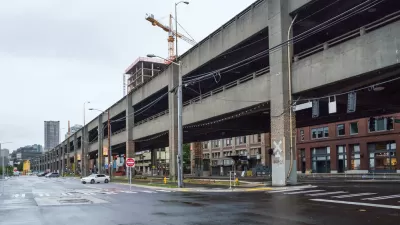San Francisco's Transbay Transit Center is just the latest example of an urban mega-project experiencing an enormous cost overrun. Eric Jaffe examines what the causes of this all too common phenomenon might be.
"So how did it get to the point where the only thing we can confidently expect from a big infrastructure project is that it will cost way more than expected?"
"One thing's for sure: the people who predict the cost of urban mega-projects do a terrible job," writes Jaffe. "Several years ago the University of Oxford scholar Bent Flyvbjerg, who's made a career researching mega-project mismanagement, analyzed 258 transportation infrastructure projects from around the world and found that nine in ten exceeded their cost estimates. The overruns were greater on rail projects than road projects but averaged 28 percent across the board."
"Whatever the underlying causes of cost overruns may be, there seems to be one promising means of addressing them: creating a 'reference class' of similar projects to serve as a platform for comparing costs. The idea, as explained by [psychologist Daniel] Kahneman in 2003 [PDF], is that old outcomes can serve as a barometer for recognizing just how unrealistic a biased new prediction might be — and help adjust it accordingly. Such a strategy controls for both political chicanery and cognitive biases alike."
FULL STORY: Why Mega-Projects End Up Costing Way More Than Expected

Planetizen Federal Action Tracker
A weekly monitor of how Trump’s orders and actions are impacting planners and planning in America.

San Francisco's School District Spent $105M To Build Affordable Housing for Teachers — And That's Just the Beginning
SFUSD joins a growing list of school districts using their land holdings to address housing affordability challenges faced by their own employees.

The Tiny, Adorable $7,000 Car Turning Japan Onto EVs
The single seat Mibot charges from a regular plug as quickly as an iPad, and is about half the price of an average EV.

Seattle's Plan for Adopting Driverless Cars
Equity, safety, accessibility and affordability are front of mind as the city prepares for robotaxis and other autonomous vehicles.

As Trump Phases Out FEMA, Is It Time to Flee the Floodplains?
With less federal funding available for disaster relief efforts, the need to relocate at-risk communities is more urgent than ever.

With Protected Lanes, 460% More People Commute by Bike
For those needing more ammo, more data proving what we already knew is here.
Urban Design for Planners 1: Software Tools
This six-course series explores essential urban design concepts using open source software and equips planners with the tools they need to participate fully in the urban design process.
Planning for Universal Design
Learn the tools for implementing Universal Design in planning regulations.
Smith Gee Studio
City of Charlotte
City of Camden Redevelopment Agency
City of Astoria
Transportation Research & Education Center (TREC) at Portland State University
US High Speed Rail Association
City of Camden Redevelopment Agency
Municipality of Princeton (NJ)





























